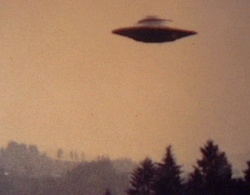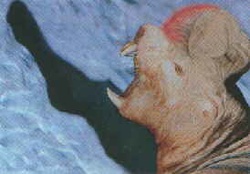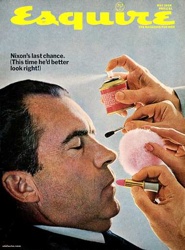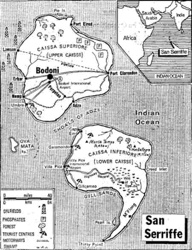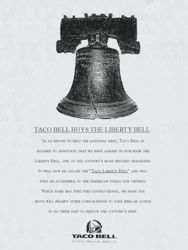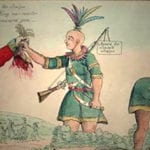 Our World
Our World  Our World
Our World  Crime
Crime 10 Dark Details of the “Bodies in the Barrels” Murders
 Animals
Animals The Animal Kingdom’s 10 Greatest Dance Moves
 Movies and TV
Movies and TV 10 Box Office Bombs That We Should Have Predicted in 2025
 History
History 10 Extreme Laws That Tried to Engineer Society
 History
History 10 “Modern” Problems with Surprising Historical Analogs
 Health
Health 10 Everyday Activities That Secretly Alter Consciousness
 History
History Top 10 Historical Disasters Caused by Someone Calling in Sick
 Animals
Animals 10 New Shark Secrets That Recently Dropped
 Movies and TV
Movies and TV 10 Forgotten Realities of Early Live Television Broadcasts
 Our World
Our World 10 Places with Geological Features That Shouldn’t Exist
 Crime
Crime 10 Dark Details of the “Bodies in the Barrels” Murders
 Animals
Animals The Animal Kingdom’s 10 Greatest Dance Moves
Who's Behind Listverse?

Jamie Frater
Head Editor
Jamie founded Listverse due to an insatiable desire to share fascinating, obscure, and bizarre facts. He has been a guest speaker on numerous national radio and television stations and is a five time published author.
More About Us Movies and TV
Movies and TV 10 Box Office Bombs That We Should Have Predicted in 2025
 History
History 10 Extreme Laws That Tried to Engineer Society
 History
History 10 “Modern” Problems with Surprising Historical Analogs
 Health
Health 10 Everyday Activities That Secretly Alter Consciousness
 History
History Top 10 Historical Disasters Caused by Someone Calling in Sick
 Animals
Animals 10 New Shark Secrets That Recently Dropped
 Movies and TV
Movies and TV 10 Forgotten Realities of Early Live Television Broadcasts
Top 15 April Fool’s Day Hoaxes
April Fool’s day is the one day of the year that serious minded people can go crazy without criticism. Over the years there have been many great hoaxes that have occurred on or around this day of the year. The Museum of Hoaxes put together a list of 100, this is the top 15.
15 The Case of the Interfering Brassieres

In 1982 the Daily Mail reported that a local manufacturer had sold 10,000 “rogue bras” that were causing a unique and unprecedented problem, not to the wearers but to the public at large. Apparently the support wire in these bras had been made out of a kind of copper originally designed for use in fire alarms. When this copper came into contact with nylon and body heat, it produced static electricity which, in turn, was interfering with local television and radio broadcasts. The chief engineer of British Telecom, upon reading the article, immediately ordered that all his female laboratory employees disclose what type of bra they were wearing.
Fool whomever you want with the Crime Scene Kit at Amazon.com!
14 The Eruption of Mount Edgecumbe

In 1974 residents of Sitka, Alaska were alarmed when the long-dormant volcano neighboring them, Mount Edgecumbe, suddenly began to belch out billows of black smoke. People spilled out of their homes onto the streets to gaze up at the volcano, terrified that it was active again and might soon erupt. Luckily it turned out that man, not nature, was responsible for the smoke. A local practical joker named Porky Bickar had flown hundreds of old tires into the volcano’s crater and then lit them on fire, all in a (successful) attempt to fool the city dwellers into believing that the volcano was stirring to life. According to local legend, when Mount St. Helens erupted six years later, a Sitka resident wrote to Bickar to tell him, “This time you’ve gone too far!”
13 The Predictions of Isaac Bickerstaff

In February 1708 a previously unknown London astrologer named Isaac Bickerstaff published an almanac in which he predicted the death by fever of the famous rival astrologer John Partridge. According to Bickerstaff, Partridge would die on March 29 of that year. Partridge indignantly denied the prediction, but on March 30 Bickerstaff released a pamphlet announcing that he had been correct: Partridge was dead. It took a day for the news to settle in, but soon everyone had heard of the astrologer’s demise. On April 1, April Fool’s Day, Partridge was woken by a sexton outside his window who wanted to know if there were any orders for his funeral sermon. Then, as Partridge walked down the street, people stared at him as if they were looking at a ghost or stopped to tell him that he looked exactly like someone they knew who was dead. As hard as he tried, Partridge couldn’t convince people that he wasn’t dead. Bickerstaff, it turned out, was a pseudonym for the great satirist Jonathan Swift. His prognosticatory practical joke upon Partridge worked so well that the astrologer finally was forced to stop publishing his almanacs, because he couldn’t shake his reputation as the man whose death had been foretold.
12 Kremvax

In 1984, back in the Stone Age of the internet, a message was distributed to the members of Usenet (the online messaging community that was one of the first forms the internet took) announcing that the Soviet Union was joining Usenet. This was quite a shock to many, since most assumed that cold war security concerns would have prevented such a link-up. The message purported to come from Konstantin Chernenko (from the address [email protected]) who explained that the Soviet Union wanted to join the network in order to “have a means of having an open discussion forum with the American and European people.” The message created a flood of responses. Two weeks later its true author, a European man named Piet Beertema, revealed that it was a hoax. This is believed to be the first hoax on the internet. Six years later, when Moscow really did link up to the internet, it adopted the domain name ‘kremvax’ in honor of the hoax.
11 UFO Lands in London
On March 31, 1989 thousands of motorists driving on the highway outside London looked up in the air to see a glowing flying saucer descending on their city. Many of them pulled to the side of the road to watch the bizarre craft float through the air. The saucer finally landed in a field on the outskirts of London where local residents immediately called the police to warn them of an alien invasion. Soon the police arrived on the scene, and one brave officer approached the craft with his truncheon extended before him. When a door in the craft popped open, and a small, silver-suited figure emerged, the policeman ran in the opposite direction. The saucer turned out to be a hot-air balloon that had been specially built to look like a UFO by Richard Branson, the 36-year-old chairman of Virgin Records. The stunt combined his passion for ballooning with his love of pranks. His plan was to land the craft in London’s Hyde Park on April 1. Unfortunately, the wind blew him off course, and he was forced to land a day early in the wrong location.
10 Planetary Alignment Decreases Gravity
In 1976 the British astronomer Patrick Moore announced on BBC Radio 2 that at 9:47 AM a once-in-a-lifetime astronomical event was going to occur that listeners could experience in their very own homes. The planet Pluto would pass behind Jupiter, temporarily causing a gravitational alignment that would counteract and lessen the Earth’s own gravity. Moore told his listeners that if they jumped in the air at the exact moment that this planetary alignment occurred, they would experience a strange floating sensation. When 9:47 AM arrived, BBC2 began to receive hundreds of phone calls from listeners claiming to have felt the sensation. One woman even reported that she and her eleven friends had risen from their chairs and floated around the room.
9 Hotheaded Naked Ice Borers
In its April 1995 issue Discover Magazine announced that the highly respected wildlife biologist Dr. Aprile Pazzo had discovered a new species in Antarctica: the hotheaded naked ice borer. These fascinating creatures had bony plates on their heads that, fed by numerous blood vessels, could become burning hot, allowing the animals to bore through ice at high speeds. They used this ability to hunt penguins, melting the ice beneath the penguins and causing them to sink downwards into the resulting slush where the hotheads consumed them. After much research, Dr. Pazzo theorized that the hotheads might have been responsible for the mysterious disappearance of noted Antarctic explorer Philippe Poisson in 1837. “To the ice borers, he would have looked like a penguin,” the article quoted her as saying. Discover received more mail in response to this article than they had received for any other article in their history.
8 The Left-Handed Whopper
In 1998 Burger King published a full page advertisement in USA Today announcing the introduction of a new item to their menu: a “Left-Handed Whopper” specially designed for the 32 million left-handed Americans. According to the advertisement, the new whopper included the same ingredients as the original Whopper (lettuce, tomato, hamburger patty, etc.), but all the condiments were rotated 180 degrees for the benefit of their left-handed customers. The following day Burger King issued a follow-up release revealing that although the Left-Handed Whopper was a hoax, thousands of customers had gone into restaurants to request the new sandwich. Simultaneously, according to the press release, “many others requested their own ‘right handed’ version.”
Start your 30 day free trial of Amazon Prime Instant Video! Start Free Trial Now at Amazon.com!
7 Alabama Changes the Value of Pi
The April 1998 issue of the New Mexicans for Science and Reason newsletter contained an article claiming that the Alabama state legislature had voted to change the value of the mathematical constant pi from 3.14159 to the ‘Biblical value’ of 3.0. Before long the article had made its way onto the internet, and then it rapidly made its way around the world, forwarded by people in their email. It only became apparent how far the article had spread when the Alabama legislature began receiving hundreds of calls from people protesting the legislation. The original article, which was intended as a parody of legislative attempts to circumscribe the teaching of evolution, was written by a physicist named Mark Boslough.
6 Nixon for President
In 1992 National Public Radio’s Talk of the Nation program announced that Richard Nixon, in a surprise move, was running for President again. His new campaign slogan was, “I didn’t do anything wrong, and I won’t do it again.” Accompanying this announcement were audio clips of Nixon delivering his candidacy speech. Listeners responded viscerally to the announcement, flooding the show with calls expressing shock and outrage. Only during the second half of the show did the host John Hockenberry reveal that the announcement was a practical joke. Nixon’s voice was impersonated by comedian Rich Little.
San Serriffe
In 1977 the British newspaper The Guardian published a special seven-page supplement in honor of the tenth anniversary of San Serriffe, a small republic located in the Indian Ocean consisting of several semi-colon-shaped islands. A series of articles affectionately described the geography and culture of this obscure nation. Its two main islands were named Upper Caisse and Lower Caisse. Its capital was Bodoni, and its leader was General Pica. The Guardian’s phones rang all day as readers sought more information about the idyllic holiday spot. Few noticed that everything about the island was named after printer’s terminology. The success of this hoax is widely credited with launching the enthusiasm for April Foolery that then gripped the British tabloids in the following decades.
4 The Taco Liberty Bell
In 1996 the Taco Bell Corporation announced that it had bought the Liberty Bell from the federal government and was renaming it the Taco Liberty Bell. Hundreds of outraged citizens called up the National Historic Park in Philadelphia where the bell is housed to express their anger. Their nerves were only calmed when Taco Bell revealed that it was all a practical joke a few hours later. The best line inspired by the affair came when White House press secretary Mike McCurry was asked about the sale, and he responded that the Lincoln Memorial had also been sold, though to a different corporation, and would now be known as the Ford Lincoln Mercury Memorial.
3 Instant Color TV

In 1962 there was only one tv channel in Sweden, and it broadcast in black and white. The station’s technical expert, Kjell Stensson, appeared on the news to announce that thanks to a newly developed technology, all viewers could now quickly and easily convert their existing sets to display color reception. All they had to do was pull a nylon stocking over their tv screen, and they would begin to see their favorite shows in color. Stensson then proceeded to demonstrate the process. Reportedly, hundreds of thousands of people, out of the population of seven million, were taken in. Actual color tv transmission only commenced in Sweden on April 1, 1970.
2 Sidd Finch
In its April 1985 edition, Sports Illustrated published a story about a new rookie pitcher who planned to play for the Mets. His name was Sidd Finch and he could reportedly throw a baseball with startling, pinpoint accuracy at 168 mph (65 mph faster than anyone else has ever been able to throw a ball). Surprisingly, Sidd Finch had never even played the game before. Instead, he had mastered the “art of the pitch” in a Tibetan monastery under the guidance of the “great poet-saint Lama Milaraspa.” Mets fans everywhere celebrated at their teams’s amazing luck at having found such a gifted player, and Sports Illustrated was flooded with requests for more information. But in reality this legendary player only existed in the imagination of the writer of the article, George Plimpton.
1 The Swiss Spaghetti Harvest
In 1957 the respected BBC news show Panorama announced that thanks to a very mild winter and the virtual elimination of the dreaded spaghetti weevil, Swiss farmers were enjoying a bumper spaghetti crop. It accompanied this announcement with footage of Swiss peasants pulling strands of spaghetti down from trees. Huge numbers of viewers were taken in, and many called up wanting to know how they could grow their own spaghetti trees. To this question, the BBC diplomatically replied that they should “place a sprig of spaghetti in a tin of tomato sauce and hope for the best.”
For the remaining 85 on the original Museum of Hoaxes website, go here
